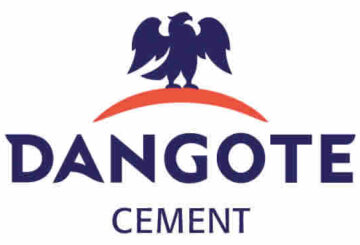 Access Bank Plc has reiterated its commitment to the environment by promoting sustainable banking practices.
Access Bank Plc has reiterated its commitment to the environment by promoting sustainable banking practices.
The bank has invested in environmentally-friendly technologies to power Automated Teller Machines (ATMs) across the country, with over 240 of its ATMs running on solar power.
Last year, the World Health Organisation (WHO) estimated that nine in 10 people globally now breath polluted air, which causes 43 per cent of all lung-disease related deaths; 25 per cent of all heart disease related deaths and causes seven million deaths annually. From 1880 to 2012, the United Nations reported that the average global temperature increased by 0.85°C, causing sea levels to rise by 19cm, due to melting ice caps and warming oceans.
More than 80 per cent of sewage in developing countries is discharged untreated, polluting rivers, lakes and coastal areas, causing the death of aquatic organisms while also increasing the level of nitrogen and phosphorus in the water. In addition, dumping of chemical substances, plastic waste and refuse causes degradation of water quality which, upon consumption, causes water-borne diseases such as typhoid, cholera, dysentery, jaundice and malaria.
By neglecting the environment, we are inadvertently disregarding our wellbeing. But according to the WHO, many more countries are taking on more sustainability initiatives to counter this urgent problem. In Nigeria, this action is being led by Access Bank.
In Africa, pollution constitutes a major problem, which has also been influenced by sub-par governance, inadequate provision of proper disposal equipment and lack of sensitization. In 2018, almost half of all African households across 25 countries rely primarily upon these highly-polluting kerosene lamps. We dampen our environment with every new industrial production and technological advancements. Lack of power supply prompts an unhealthy use of petroleum in generators, which emits a lot of greenhouse gases that cause air pollution and the diseases.
For many years, Access Bank has taken the initiative to embark on several sustainability projects, all of which are intended to sensitize, educate and support platforms, products and people that can consistently improve the environment and enable growth. As part of an extensive and extremely-focused Corporate Social Responsibility (CSR), the bank commissions several projects annually for community development and environmental preservation.
Obviously, the bank understands the importance of a healthy earth and its ecological resources and natural capital for business to thrive. Some initiatives that have been led by the bank provides an immense insight into its mission to reverse the negative effect that negligence has had on the environment:
Environmental Considerations in Project Finance: Access Bank has positioned this initiative to make sure that the projects it finances does not contribute to environmental pollution. It is the first financial institution in the country to deploy a customized Sustainable Finance toolkit that helps screen projects and identify potential environmental consequences.
Energy Efficiency: Access Bank regulates the power consumed daily through a bank-wide shutdown policy – reducing the use of diesel-powered generators in its Head Office and all branch offices – which successfully reduced energy consumption by 24.7 per cent in 2017.
Waste Management: Through mandatory paper and print saving initiative, Access Bank has reduced the level of waste churned out by up to 50 percent.
Emissions: Some of the initiatives Access Bank has taken to reduce its emission of Greenhouse gases include the introduction of paperless work processes; reduction in paper usage through mandatory double-sided printing; reduction in energy and fuel usage; tree-planting projects around the country and installation of video conferencing in key offices and head office to reduce CO2 emissions by reducing traveling.
Access Bank has also massively driven its projects through two major programmes, which are Employee Volunteering scheme and Community Investment. The Employee Volunteering scheme offers employees the platform and opportunity to contribute to the development of communities around them. Over the years, thousands of Access Bank employees have made impact in different communities all across the country. There are dozens of innovative ideas led by the bank employees to aid struggling communities such as We Care Project; Caring for Children with Needs; Youth Empowerment and Rehabilitation Initiative; Awareness Forum on Violence against Women and Children; School Renovation Project and so many more.
The Community Investment has several support programs including Malaria to Zero; UNICEF Charity Shield Polo Tournament; Access Lagos Marathon and much more. In 2015 alone, Access Bank managed to reach over 50,000 citizens through education programmes, capacity building initiatives, girl-child mentorship, among others. In 2016, the bank impacted over 20,000 students, 10,000 children, 4,000 patients and 3,800 persons in retirement homes.
With its diabetes outreach programme in 2017, Access Bank reached 1,256 persons with information, medical counseling, blood pressure test and body mass index measurement.
Through the ACT Foundation, Access Bank supported 22 organizations with projects relating to health, entrepreneurship, environment and leadership, with the project impacting 54,941 people across 23 states.
Among many other things, Access Bank has rapidly built a reputation as a reliable bank for national development, strong customer partnership and global collaboration for a sustainable economy. Every single action has set the institution on the right path to achieving its true vision of becoming Africa’s most respected and sustainable bank.


